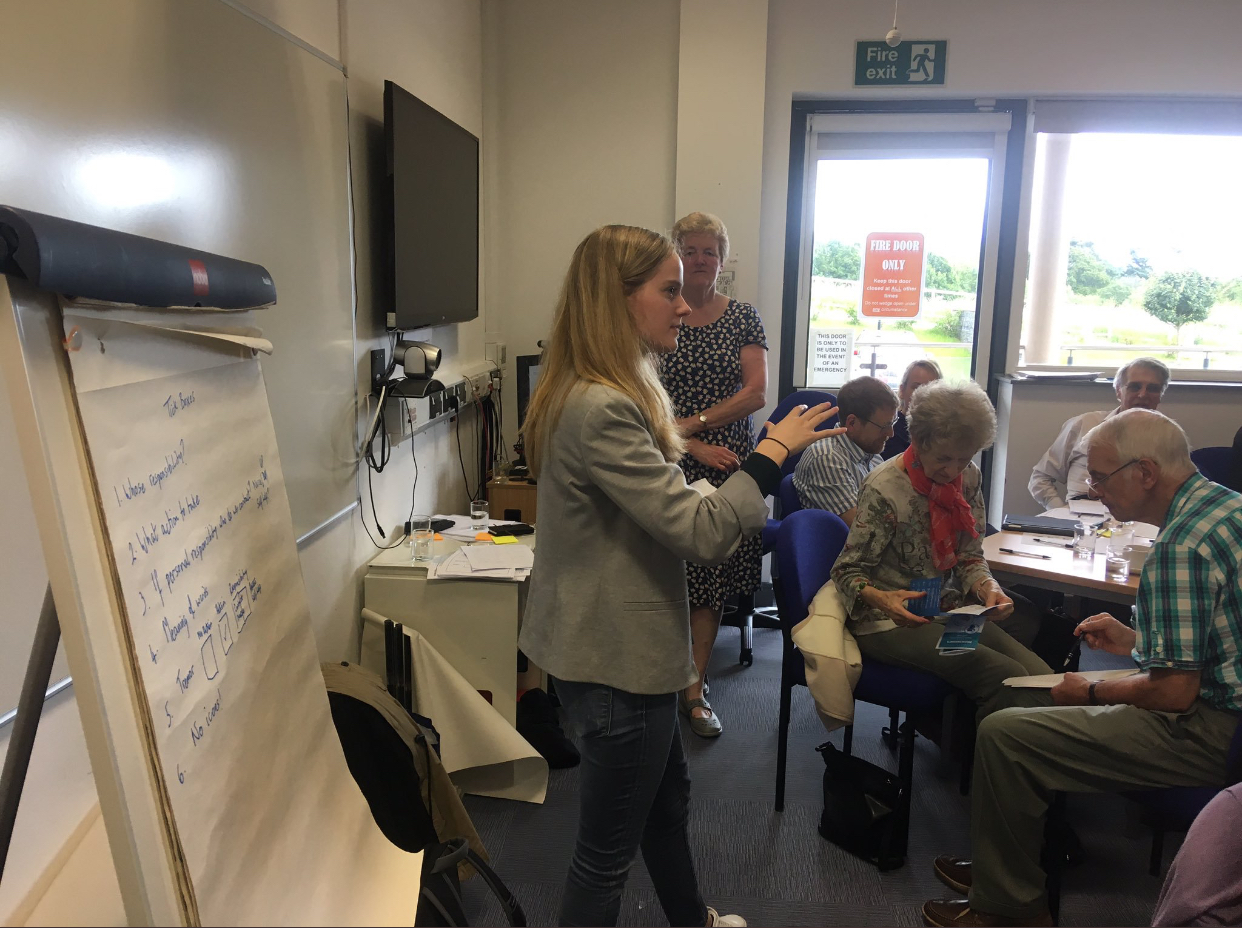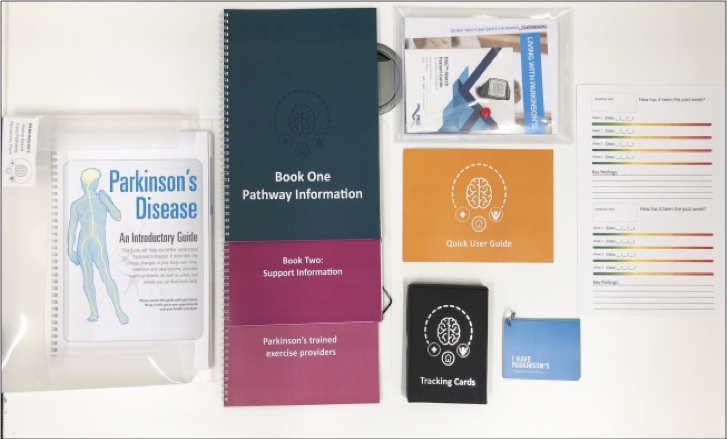Category: Other
Objective: To create a new care pathway that puts the needs of the patient at the centre of service design and delivery.
Background: The traditional model of Parkinson’s disease (PD) care in the UK is for clinician-initiated contact which usually takes place in a hospital-based clinic at pre-determined times. In our service, appointments are often delayed due to long waiting lists; this means opportunities for effective interventions are missed, with negative consequences for patient care. We wanted to design a service centred around the patient – putting them in control of their healthcare contacts. The aim of the project was to understand patient need and design the components of a new patient-centred service.
Method: Over a period of 18 months we held a series of 9 workshops facilitated by experts in healthcare design and conducted in a way that facilitated open discussion and contribution. The voice of patients and their care partners was central. Workshops were also attended by a broad range of professionals involved in PD care, including neurologists, specialist nurses and allied health professionals. Initial workshops focused on identifying current service gaps and how these could be addressed. Later workshops focused on the design and iteration of specific components of the new service.
Results: Key elements were identified for the success of the new pathway. Patients wanted: (1) to feel empowered with knowledge about their Parkinson’s; (2) clinical teams to be available when needed; (3) care delivered in their own homes as much as possible. Clinical teams wanted reassurance from monitoring (safety net). These features led to the development of Home Based Care. With the patients, we developed education and learning materials, to promote and support awareness of PD and self-management. It is clear for patients how and when to initiate contact with the clinical team. Lastly, patients have 6-monthly monitoring of motor and non-motor symptoms at home, using the Parkinson’s KinetigraphTM watch and validated questionnaires. All patients are supported onto the pathway by a training session explaining each part of the pathway.
Conclusion: Through workshops we gained an understanding of the service needs of people with PD and their carers, and were able to facilitate their input into development of a new pathway. We now plan to recruit an initial 150 patients to Home Based Care (with patients on the project team), with ongoing evaluation and improvement.
Disclosures: Initial workshops funded by an unrestricted educational grant from Bial; Later workshops and HBC service development funded by The Health Foundation and Parkinson’s UK.
To cite this abstract in AMA style:
E. Edwards, R. Partridge, U. Ankeny, J. Langley, S. Whipps, J. Whipps, J. Rideout, A. Evans, S. Bentley, M. Swabey, H. Matthews, N. Stevens, R. Chivers, T. Dominey, K. Triscott, C. Carroll. Home Based Care: A care pathway innovation for Parkinson’s disease [abstract]. Mov Disord. 2020; 35 (suppl 1). https://www.mdsabstracts.org/abstract/home-based-care-a-care-pathway-innovation-for-parkinsons-disease/. Accessed April 2, 2025.« Back to MDS Virtual Congress 2020
MDS Abstracts - https://www.mdsabstracts.org/abstract/home-based-care-a-care-pathway-innovation-for-parkinsons-disease/



